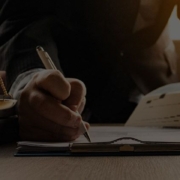Responsibility by Negligent Entrustment or Vicarious Liability
A Mississippi resident can be held financially liable for damages caused by their vehicle even if they were not driving when the damage occurred. If someone lends their vehicle to a family member, friend or employee, or the vehicle has a manufacturing defect, the owner of the vehicle can be held responsible in the event of an accident.
If a vehicle owner has prior knowledge that someone is an unsafe driver, they should not lend their vehicle to that individual. If they do lend their vehicle to the unsafe driver, the owner can be held liable for any accidents that occur. Several states permit both the driver of the vehicle and the owner to be named as defendants in lawsuits that are filed under the vicarious liability theory. Even in jurisdictions in which there is no owner’s liability law, the negligent entrustment theory can be used to hold the vehicle’s owner liable for injuries that were incurred by the unsafe driver that was allowed to use the vehicle.
Parents should also be wary when lending a vehicle to their minor children. The Family Car Doctrine can be used to hold parents responsible for damages that are the result of a vehicle being driven by a minor. This doctrine can be applied even if the minor is not included in the automobile insurance policy.
Employers can also be held liable under the "respondeat superior" and vicarious liability negligence theories if their employees are responsible for accidents while behind the wheel of the company vehicle. However, this applies only to accidents that take place while the employee is performing work duties.
A personal injury attorney may work to protect the rights of a client who has been injured in a car accident. Financial damages may be pursued for medical expenses and pain and suffering.















